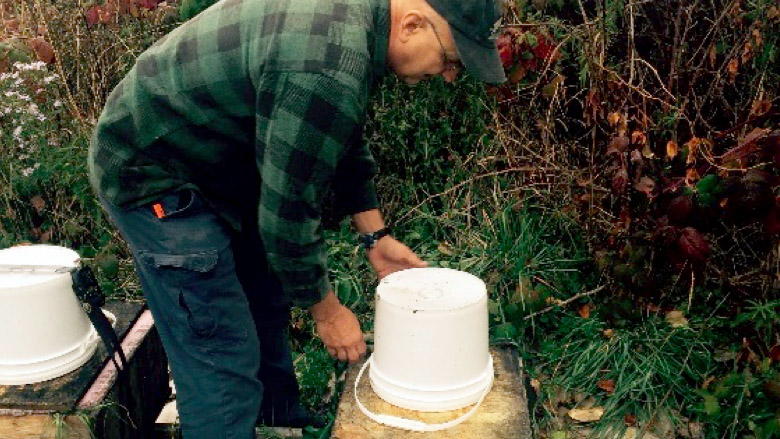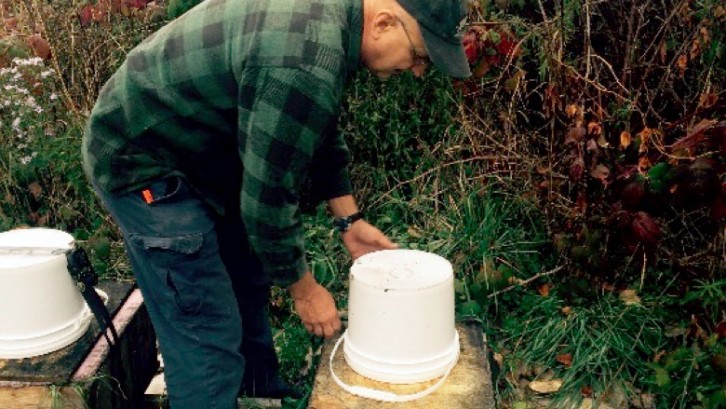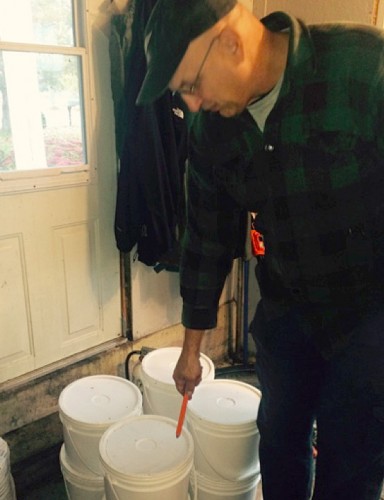Honeybee farming
Community support boosts honeybee success

caption
Owner Joe Goetz maintains a hive at Scotian Bee Honey in Windsor, N.S.
caption
Owner Joe Goetz maintains a hive at Scotian Bee Honey in Windsor, N.S.Community and honeybees are the two things Joe Goetz depends on for the success of his farm.
Goetz has been honeybee farming for over 15 years, first as a hobby and five years ago as a business.
He runs the Scotian Honey Bee business in Windsor, N.S., and uses land around rural communities to produce his honey bees. He has more than 400 hives on properties from Chester to Burntcoat.
Goetz says he and his wife Michelle will scope out potential spaces to put hives and then will go ask the owner if they can put it there. One in three people will usually say yes to Goetz, and they get the benefit of fresh honey and pollination.
Mason Apples even pays Goetz for his honeybees. They need the honeybees to pollinate their apples and blueberries.
Friends from the community also help Goetz run the main location of the farm on 34 Sangsters Bridge Road.
“We typically pay in honeybees because they are trying to get into it as well,” he says.
Jen Murphy is one of the friends who helps out at the farm and she uses Goetz’s honeybees to pollinate her sunflower maze in the summer.
“I do it to learn, so I can learn about honeybees and bee keeping,” says Murphy.
Goetz helps people in the community get into honeybee farming by offering sessions on how to start their own honeybee hive. The session costs $25.00, but a portion of the earnings is given to the local food bank.

caption
Owner Joe Goetz shows his buckets of sugary water to feed the bees at Scotian Bee Honey in Windsor, N.S.He says they get a tour of the bee hives and honey house with instruction, and at the end it comes with a free lunch. They learn about the honeybees and the type of equipment necessary to maintain the hive.
People also learn from the session that they may not need any equipment to start their own hive.
“You could do it with nothing if you have a hollow tree and the bees go into it,” says Goetz.
He uses a man-made langstroth hive that has movable frames to accommodate the honeybees. The manufacturer, Bee Thinking, says this type of hive is made of stacked wooden boxes with different depths, and each box has wooden frames where the bees make their combs.
Goetz sells honeybees from Australia on his farm because they are less susceptible to Varroa mites, which feed off a honeybee’s bodily fluid and can kill an entire colony.
Goetz says honeybee farming has been OK this year, but production of honey has been down for honeybee farmers.
“It should be interesting trying to get honey later on this year,” he says.
Goetz is happy where his business is now and has no plans on expanding it.
